Loneliness is officially a health emergency in California’s San Mateo County, which is located in the San Francisco Bay Area and includes part of Silicon Valley.
The county’s Board of Supervisors passed a resolution on Tuesday that declared loneliness a public health crisis and pledged to explore measures that promote social connection in the community.
It’s the first county in the U.S. to make such a declaration.
The resolution doesn’t directly set aside funds for programs to reduce loneliness; rather, it signals the county’s commitment to addressing the issue and validates residents’ experiences, said David Canepa, the Board of Supervisors’ vice president, who introduced the legislation.
“What we’re trying to do is to really get people out of the corners and say, ‘Hey, look, there are a lot of people who are feeling like you. You’re not alone. And moving forward, here are some of the things that we can do to support you,'” he said.
Canepa added that the measure was partly inspired by efforts in the U.K. and Japan, which have each appointed national ministers to address loneliness. He was also influenced by conversations with his staff about the links between loneliness and smoking and diabetes, as well as an advisory from Surgeon General Vivek Murthy in May that urged governments to prioritize strategies to promote social connection.
Murthy wrote Friday in a post on X that he was grateful to San Mateo for leading the charge.
Around 17% of U.S. adults in a Gallup poll in February 2023 said they had experienced loneliness the day prior. Canepa said the rate in San Mateo is higher, pointing to a county-led survey in 2022 — the latest data available — which found that 45% of residents were struggling with loneliness and isolation.
An abundance of research has outlined serious health consequences associated with loneliness, including an increased risk of dementia, depression, anxiety, heart disease and stroke.
A November study found that people in the U.K. who lived alone and were not visited by friends or family had a 39% increased risk of premature death compared with people whose loved ones visited daily. An analysis published in 2010, meanwhile, found that social relationships — or lack thereof — had a greater influence on the risk of death than obesity.
Relative to white people, Black people face a higher risk of premature death linked to social isolation. Older adults have a higher risk of loneliness in general, since they are more likely to live alone or have chronic illnesses that limit their mobility or leave them homebound.
Canepa said San Mateo has a large share of older residents, many of whom became especially isolated during the pandemic. People ages 65 and up make up more than 18% of the county’s population, compared with the state average of 16%.
“It’s sort of a perfect storm for older adults right now,” said Jennifer Steele, the CEO of Meals on Wheels San Francisco, an organization that delivers hot meals to seniors in northern San Mateo County.
“People don’t live close to their loved ones anymore,” she said. “Sometimes people have outlived their loved ones in some cases. Your social circle shrinks after retirement. It’s harder for people to make friends.”
Around 45% of the seniors served by Meals on Wheels in northern San Mateo live alone, according to the organization.
“We’re often the only people that they may see in a week,” Steele said. “It’s a crisis for a lot of the people that we serve.”
Canepa said he also worries about loneliness among teenagers and young adults in San Mateo for two reasons. One is that they’re frequently on social media, and research has shown that heavy social media use can increase feelings of loneliness. Another is that Silicon Valley’s high-achieving atmosphere may put stress on teens.
“You have Stanford, which is in Palo Alto right next to our county line. You have all these educational institutions. People are dealing with, ‘Oh my God, I have to fill out my college recommendation. Oh, my goodness, what school am I going to get accepted to?’ There’s so much pressure on our young people,” he said.
Canepa said he has several ideas for how to improve social connections in San Mateo — among them, investing in infrastructure to make neighborhoods more walkable and partnering with social media platforms headquartered there, like Meta, to encourage residents to get outside or join community meetups. He also wrote a letter to California Gov. Gavin Newsom on Tuesday calling for a state-appointed “minister of loneliness.”
A county fund subsidized by sales tax could help finance some of these efforts, Canepa said. The fund allocates $47 million annually for new community initiatives, including around $10 million for mental health initiatives. Canepa’s office is seeking proposals from organizations that fit those categories.
But it’s difficult to predict what will actually ease loneliness, said David Sbarra, a psychology professor at the University of Arizona. While scientists have a good understanding of the downstream effects of loneliness, he said, they don’t have a clear picture of all the factors that contribute to it.
Sbarra said treating loneliness as purely a mental health issue can ignore systemic factors that make it hard to socialize. For instance, people who work two jobs have less time to spend with friends or family, he said.
“If local governments increase the minimum wage, you might do more for loneliness than getting people to reappraise difficult events in their life,” Sbarra said.
Murthy’s advisory outlined several strategies to encourage socialization. One is policy measures like accessible public transportation and paid family leave that make it easier for people to spend time with one another. Another is investment in community spaces like parks, libraries and playgrounds. Health care providers could also ask the patients they see if they’re feeling lonely.
But Sbarra said there’s still a debate as to whether loneliness is an epidemic in the U.S., as Murthy has said. The same Gallup poll last year found that loneliness in adults had declined since 2020 and early 2021. Sbarra said people may start to feel less lonely as they re-adjust to social activities post-pandemic.
Nevertheless, he said, it’s important for governments to see socialization as a public health priority.
“Thinking of your relationships as important to your health, as you do physical activity, diet and sleep is really the key messaging here,” he said.

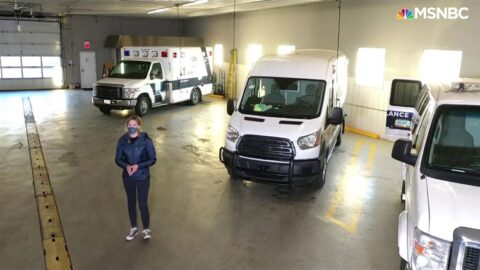

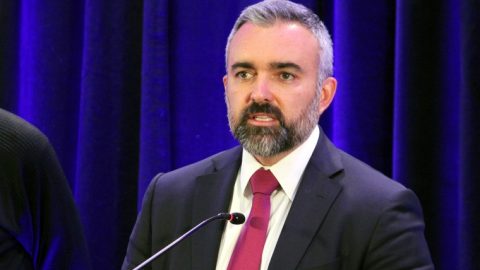
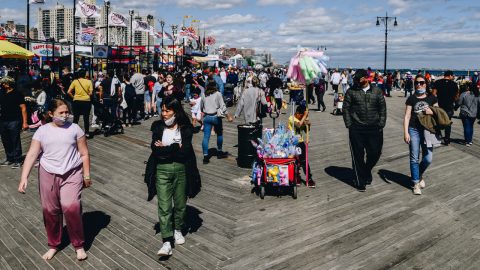
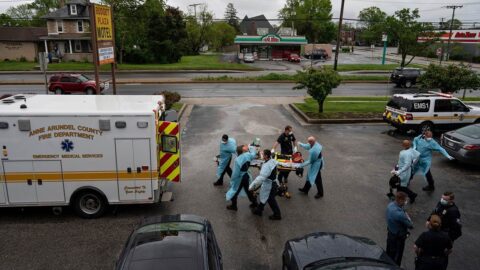
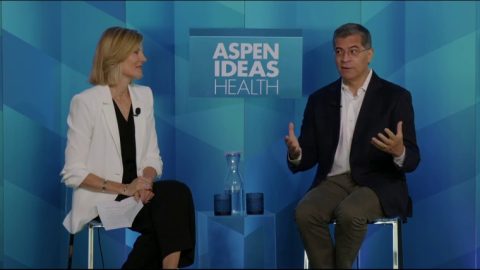

Recent Comments